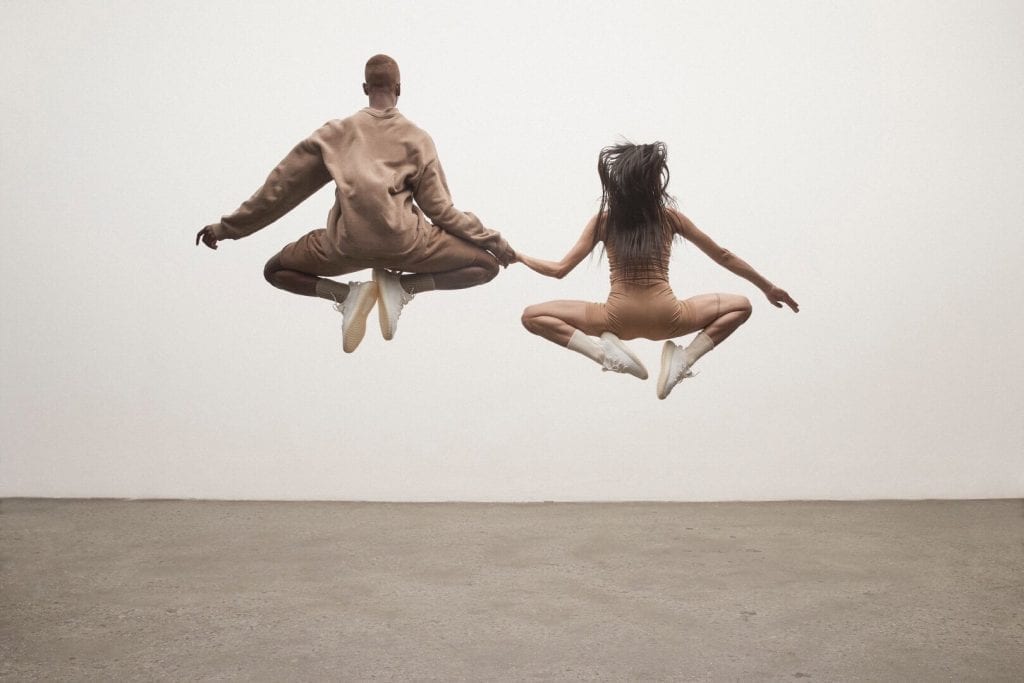On the heels of parading his neutral-hued Yeezy Season 8 offerings in a runway show staged outside of the Espace Niemeyer in Paris, the former home of the French Communist Party, earlier this month, Kanye West and his brand appear to have managed to settle a year-long legal fight, which accused West and his brand of allegedly failing to make good on a $600,000-plus contract, while running Yeezy Apparel as “a mere shell [company] … intended, conceived [of], and used by Kanye as a device to avoid individual liability.”
In the lawsuit that it filed in Superior Court for the County of Los Angeles in January 2019, Toki Sen-I Co. asserted that it had entered into a contract with Yeezy Apparel in June 2018 in furtherance of which it would provide the brand with 53,000 yards of “fleece fabric to be used to make Yeezy shoes” in exchange for $624,051.76. While Toki Sen-I Co. claimed that it had no reason to worry about whether or not West’s company would make good on a contract, in light of the fact that the parties had worked together in the past without issue and given that Yeezy is “a very well-known brand, run by a found celebrity, and that shows several millions of dollars in revenue,” things ultimately went awry.
After “contracting with a mill and beginning a large scale production” in order to create the fabrics needed by Yeezy Apparel, Toki Sen-I Co. claimed that the deal broke down when the Los Angeles-based brand “refused to tender [a down] payment” for the fabrics, and thereafter, showed “no interest in resolving the dispute or performing their obligations” in connection with the contract, thereby, breaching the duty of good faith and fair dealing that comes with the signing of every contract.
More than merely claiming the brand failed to pay up, Toki Sen-I Co. set forth claims of fraud and asserted that Yeezy Apparel is “a mere shell and sham without capital, assets, membership interests, or members other than Kanye … intended, conceived [of], and used by Kanye as a device to avoid individual liability,” which made West, himself, a necessary defendant in the case, the supplier argued.
In response to the suit, counsel for Kanye and Yeezy took issue with Toki Sen-I Co.’s allegations that West set up Yeezy exclusively to “shield himself from personal liability in connection with his fashion collections,” arguing that its inclusion of Kanye as a defendant was “baseless,” as the lawsuit “rests only on [a] business dispute between two companies,” and that “there are zero contracts alleged between [Toki Sen-I Co.] and Mr. West, himself, either before, after, or during the [failed] transaction.” More than that, West’s counsel claimed in its answer in September that the assertion that Kanye is the sole member of Yeezy Apparel is “legally and factually unsupported,” since at the timing of the contract, “Yeezy Apparel’s Chief Executive Officer was an individual named Eugene Kim – not Mr. West.”
Fast forward to late February and on the heels of West’s legal team filing a stipulated protective order in mid-October (seemingly seeking to block discovery of of documentation demanded by Toki Sen-I Co.), it appears that the two parties have managed to settle their differences out of court, as counsel for Toki Sen-I Co. filed to voluntarily dismiss the case – with prejudice, meaning that it cannot file suit on the very same basis against Yeezy at a later date. The terms of the dismissal – which is almost certainly the result of a settlement – are confidential.
*The case is Toki Sen-I Co., v. Yeezy Apparel LLC, Kanye West, et al., 19-VECV-00110 (Cal. Sup.).











